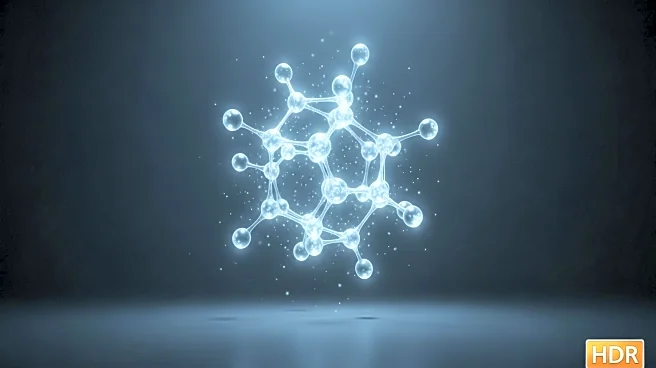What's Happening?
Researchers at UCL have successfully demonstrated how amino acids can spontaneously link to RNA, a fundamental step in the origin of life. This study, published in Nature, shows how RNA might have first controlled protein synthesis, a process essential to life. The research utilized simple chemistry in water at neutral pH to achieve this linkage, overcoming previous challenges with highly reactive molecules. The study unites two prominent theories of life's origin: the 'RNA world' and the 'thioester world', suggesting a potential link between metabolism, the genetic code, and protein building.
Why It's Important?
This breakthrough provides significant insights into the origins of life, potentially linking two major theories about how life began. Understanding how RNA could have controlled protein synthesis is crucial for comprehending the fundamental processes that led to the development of life on Earth. The study's findings could have implications for fields such as biochemistry and molecular biology, offering new perspectives on the evolution of life and the development of complex biological systems.
What's Next?
The next step for researchers is to establish how RNA sequences could preferentially bind to specific amino acids, allowing RNA to code instructions for protein synthesis. This would further elucidate the origin of the genetic code. The study opens avenues for future research into the chemical processes that could have occurred on the early Earth, potentially leading to the development of self-replicating molecules and the emergence of life.










